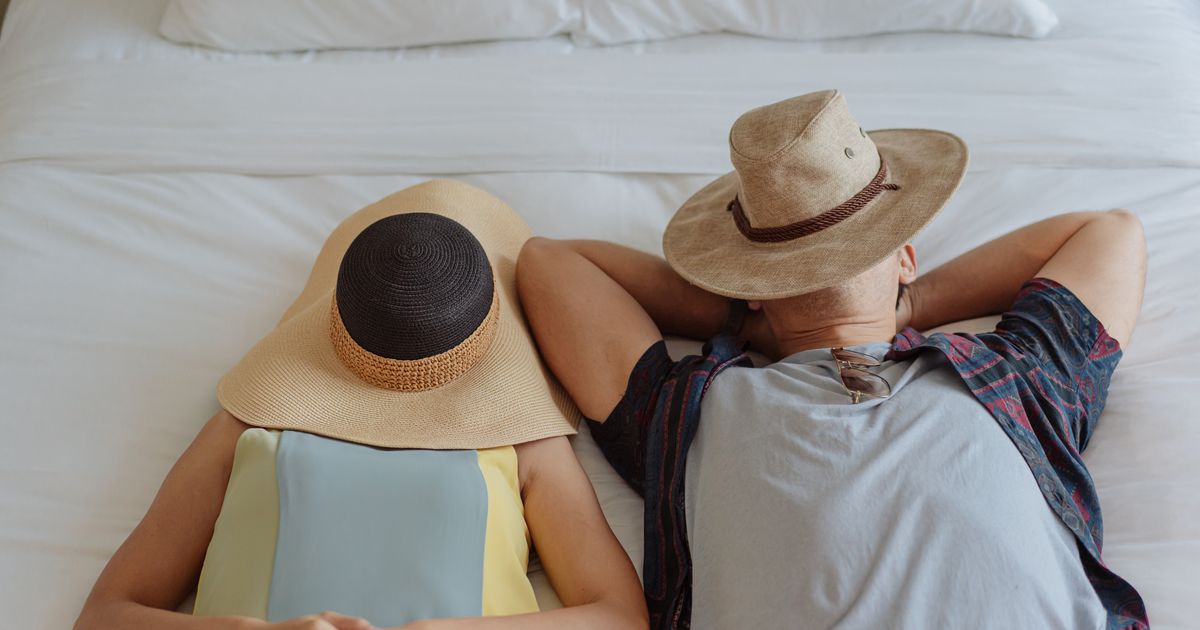Whether it’s for business or pleasure, traveling can be filled with excitement. It may also involve a bit of a disturbance in your sleep routine — aka jet lag.
If you’re no stranger to traveling, you’ve probably encountered a bit of jet lag. If you’re a parent, maybe you’ve struggled getting your little ones adjusted, too. It’s something that you can experience when traveling to another country or even from flying across the United States. It can often feel like an inevitable occurrence — a price to pay for traveling.
However, everyone’s experience with jet lag is different, and it may not affect some people as much as it does others. This may ultimately depend on what direction you’re traveling and how many time zones you’re crossing.
Ahead, we spoke with experts to find out whether jet lag is worse traveling east or west and how you can reduce exhaustion on your next trip:
Traveling from west to east — or jumping ahead in hours — may wreck your sleep more.
You can look at jet lag as a temporary sleep disorder that occurs when your body quickly travels across time zones. “This occurs because your body’s internal clock, also known as its circadian rhythm, remains aligned with your original time zone,” said Michael DeLucca, a travel expert and founder of Otsy.
Traveling east ― or jumping ahead in time, whatever the case may be ― can be particularly challenging due to the loss of hours, making it feel earlier in the evening and causing you to stay awake much later than normal.
DeLucca said he’s extremely familiar with jet lag and finds that “traveling east from the West Coast to the East Coast impacts me the most,” and that he often needs two to three days for his internal clock to adjust.
“I find myself staying up and waking up much later than usual. Conversely, when I travel back from the East Coast to the West Coast, I feel more exhausted but tend to sleep better on the first night, quickly re-aligning my internal clock,” DeLucca said.
There’s a reason this happens: Because “it’s easier to gain time as we increase our sleep pressure ― the need to go to sleep ― and so going to sleep at the new, later time is something we can more easily adjust to,” said Charli Davies, sleep expert and founder and CEO of Snuzzze. “When traveling east, we’re losing time and going to bed earlier. And waking up earlier is much harder as our bodies aren’t ready to sleep yet.”
This doesn’t mean you’re immune to…
Click Here to Read the Full Original Article at Travel…
